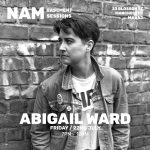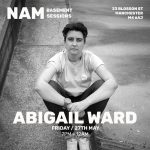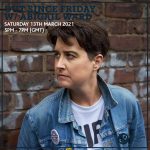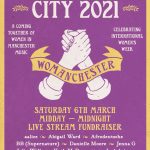Seventies secrecy in Salford pubs, joyous Gaychester resistance and cutting-edge, late-nineties, alternative club culture. Manchester’s musical LGBT+ history explored with exhibition and digital archive revamp:
- Exciting, rarely-seen footage and photography from the dancefloor of the Hacienda’s famous FLESH club night evoke the unassailable spirit of ‘Gaychester’ in new exhibition
- Photography from 1970s Salford and Manchester gay bars and the provocative, alternative dance scene of the millennium tell overlooked stories from the famous music city
- Articles from influential fanzine, ‘The Mancunian Gay’ as well as flyers, badges and membership cards are retrieved from personal archives tell a tale of struggle, resilience and celebration.
The history of Manchester as a home for free expression and resistance through music, dance and culture is told through stories, unseen videos, photographs and rare artefacts drawn from the personal archives of the city’s LGBT community for a new exhibition, Queer Noise: The History of LGBT+ Music & Club Culture in Manchester, opening at the People’s History Museum between Thu 1 July – Sun 10 September 2017. As part of Never Going Underground 2017, a major exhibition marking 50 years since the partial decriminalisation of homosexuality, Manchester Digital Music Archive gathers notable artefacts, imagery and music to tell the story of how pubs, gig venues and dance floors gave rise to flourishing, creative and diverse scenes once known as ‘Gaychester’.
The small exhibition, a contribution to the museum’s larger focus on LGBT+ rights, coincides with the archive’s relaunch and drive to attract more music lovers to upload their artefacts, with the archive’s founders expressing concern that the vital LGBT+ and women’s histories are in danger of being lost forever without more collecting and sharing.
Punk provided an expressive sanctuary for LGBT+ communities in post-industrial Manchester as the wake of the Sex Pistols’ appearance in the city in 1976 left bands like Buzzcocks (fronted by openly bi-sexual, Pete Shelley) and clubs like The Ranch, a bar owned by renowned drag artist and entrepreneur, Foo Foo Lammar, to soak up the city’s disenfranchised youth. As well as photographs of the punk era, including contributions from Kevin Cummins, exciting, rarely-seen evidence of the otherwise well-documented dance revolution of the early 90s and the Hacienda’s legendary Flesh night also features in the exhibition. Shot from the Hacienda dancefloor, film featuring a travelling contingent from London club, Kinky Gerlinky, shot by film maker, Dick Jewell and up-close shots by Manchester photographer, Jon Shard, evoke a sense of unbound freedom in a community threatened by the oppression of Greater Manchester Police and ‘God’s Cop’, James Anderton.
In addition to the LGBT+ perspectives on these famous episodes in the city’s music history, it is the lesser known people and places that also find space in the considered selections of archive co-founder and curator, Abigail Ward.
Ahead of the exhibition, Ward says: “‘Queer Noise’ spans some of the most famous moments in the city’s cultural history, and highlights the incredible influence of queer artists, club promoters and fans. But queer club culture in this city didn’t just start with punk and the end at the Haçienda, it existed and thrived in the post-war period and continues to evolve today. The purposely provocative alternative queer scene of the late 90s reflects as many stories of true, expressive freedom as the remarkable footage from the famous ‘Flesh’ night at the Hacienda or images of Salford’s underground taken four decades ago.”
A Salford pub, the name forgotten, was captured by renowned musician, artist and photographer, Linder Sterling in the late 1970s and is the subject of three, unseen photographs loaned for the exhibition, alongside a further three shots of the inside of the notorious Dicken’s Bar on Oldham Street during the same period. As the popularity of Canal Street boomed at the turn of the millennium, DJs, musicians and dancers turned to smaller clubs on the fringes, giving rise to nights like the legendary, Homo Electric, eschewing the ‘glam’ of polished bars and commercial dance music for eclectic playlists in sweaty, run-down cellars. Candid footage of nights in much-loved, pre-Manchester regeneration clubs, like the demolished Legends, provides a window onto an electrifying subculture.
Ward continues: “Manchester Digital Music Archive can trace some of these histories through the contributions of our LGBT+ members, but the exhibition also gives us a chance to reflect on the fact that more LGBT+ music lovers, and women in particular, need to share their memories and artefacts with us or face the prospect of their individual and shared histories going undocumented and unavailable for study by future generations. There are so many photos, posters, videos and other items out there waiting to tell incredible stories.”
Manchester Digital Music Archive was established in 2003 to celebrate Greater Manchester music and its social history and has 2953 active users, uploading artefacts from their personal collections. A relaunch of the site, including updates to allow easier and more instantaneous smart phone uploads, has gone ahead to encourage the 30% female base of users to share more items as well as offering a potential solution to an evident shortfall in the number and range of uploads relating to the region’s current and historic LGBT+ music culture.






Comments by Abigail Ward